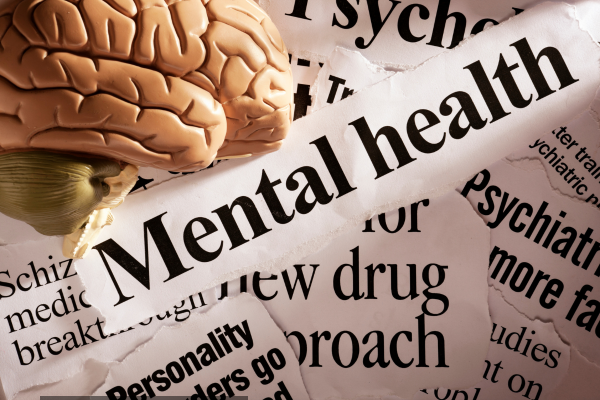Self-recovery is the process of healing and restoring balance within yourself. It involves regaining control over your mental, emotional, and physical well-being. This journey often begins when you acknowledge that changes are necessary to improve your life. Many people turn to self-recovery when they feel overwhelmed by stress, trauma, or negative emotions.
At Self-Recovery, you can explore a variety of tools and techniques that help individuals take charge of their own healing. These techniques include mindfulness practices, mental clarity exercises, and lifestyle adjustments. The goal of self-recovery is to empower individuals to heal themselves, rather than depending solely on external help.

Understanding the Importance of Self-Recovery
Self-recovery is vital for anyone who wants to regain control of their life. Many people face challenges that affect their mental and physical health. These challenges can lead to feelings of helplessness, depression, or anxiety. When you take the first step toward self-recovery, you acknowledge that you have the power to change your life.
- It allows you to:
- Improve mental clarity
- Reduce anxiety and stress
- Restore emotional balance
- Enhance physical well-being
Self-recovery also emphasizes the importance of nurturing yourself daily. By making small adjustments to your routine, you can experience lasting improvements.
Key Components of Self-Recovery
Self-recovery is not a one-size-fits-all solution. The key to successful recovery lies in personalizing your approach to healing. Different people may benefit from various strategies. Below are some critical components of self-recovery:
- Mindfulness: Mindfulness involves being fully present in the moment. It helps you stay connected with your thoughts, emotions, and physical sensations.
- Physical Exercise: Exercise improves your mental and physical health. It releases endorphins, which naturally reduce stress.
- Healthy Diet: A balanced diet is essential for maintaining mental and physical well-being. Certain foods, such as leafy greens and whole grains, support brain function.
- Rest and Sleep: Rest and proper sleep are crucial for emotional recovery. Lack of sleep affects your ability to think clearly and manage emotions.
The Role of Mindfulness in Self-Recovery
Mindfulness plays a crucial role in self-recovery. It encourages you to be more aware of your present emotions and thoughts. Often, people get lost in thoughts about the past or future, which can lead to anxiety or stress. By practicing mindfulness, you train your mind to focus on the present moment. This allows you to reduce negative thought patterns and improve emotional regulation.
At Self-Recovery, you can explore mindfulness exercises that promote relaxation and mental clarity. These practices include breathing exercises, guided meditations, and body scans. When incorporated into your daily routine, mindfulness can be a powerful tool for achieving long-term emotional balance.

Lifestyle Changes for Effective Self-Recovery
In many cases, small lifestyle changes can make a significant difference in your self-recovery journey. One of the most critical changes is learning to prioritize your well-being. This can be done by setting boundaries and reducing activities that drain your energy.
Some practical lifestyle changes include:
- Reducing screen time
- Engaging in outdoor activities
- Practicing gratitude
- Limiting negative influences from social media
By making these adjustments, you give yourself the space to heal and grow.
Self Recovery online Addiction Recovery Program on-demand approach allows you to conveniently explore the causes of your addiction anytimeNutrition and Self-Recovery: What You Need to Know
Nutrition plays a vital role in the self-recovery process. What you eat affects your physical and emotional well-being. A diet rich in nutrients supports your body’s natural healing processes. Incorporating fruits, vegetables, and protein-rich foods into your meals can help you recover more quickly from stress and illness.
Self Recovery online Addiction Recovery Program on-demand approach allows you to conveniently explore the causes of your addiction anytimeSome foods that enhance recovery include:
- Omega-3 fatty acids (found in fish and flaxseeds)
- Leafy greens (such as spinach and kale)
- Whole grains (such as oats and quinoa)
At Self-Recovery, you can explore various dietary suggestions that promote healing. By maintaining a balanced diet, you can fuel your body and mind with the essential nutrients needed for optimal recovery.
The Power of Physical Exercise in Self-Recovery
Physical exercise is another essential aspect of self-recovery. Exercise not only improves physical health but also boosts mental well-being. Regular physical activity increases the production of endorphins, the body’s natural stress relievers. Engaging in activities such as walking, yoga, or strength training can enhance your overall health and reduce anxiety.
Exercise also improves sleep patterns, reduces symptoms of depression, and enhances cognitive function. Incorporating just 20 to 30 minutes of physical activity into your daily routine can have lasting benefits for your recovery journey.
Emotional Healing and Self-Recovery
Emotional healing is a core part of self-recovery. Whether you are recovering from trauma, grief, or daily stress, emotional healing allows you to process your feelings and regain control over your emotions. The first step in emotional healing is acknowledging your pain and understanding that it is valid.
Some helpful emotional recovery techniques include journaling, talking to a supportive friend, or practicing deep breathing exercises. By allowing yourself to feel and process emotions, you can begin to heal and move forward.

The Importance of Rest and Sleep for Recovery
Rest and sleep are critical for the self-recovery process. Sleep helps restore both your mind and body. Without adequate sleep, your brain cannot function correctly, which can lead to poor decision-making and heightened emotional reactions. Rest also plays a role in allowing your muscles to recover after physical exertion.
Practicing good sleep hygiene can significantly improve the quality of your rest. This includes creating a regular sleep schedule, limiting caffeine in the afternoon, and reducing screen time before bed.
Setting Boundaries in Self-Recovery
Setting boundaries is essential to maintaining balance during your self-recovery journey. When you set healthy boundaries, you protect your time, energy, and emotional well-being. This allows you to focus on what truly matters, including your recovery.
Some practical tips for setting boundaries include:
- Saying “no” when necessary
- Prioritizing self-care over social obligations
- Communicating your limits to others
At Self-Recovery, you can learn how to set and maintain boundaries that will help you stay focused on your well-being.
Developing a Wellness Routine for Recovery
A wellness routine is an effective way to incorporate self-recovery practices into your daily life. Your routine should include activities that nurture your mind, body, and spirit. This could include meditation in the morning, a nutritious breakfast, a workout, and journaling before bed.
When creating your wellness routine, it’s important to focus on consistency. It’s better to practice a few activities regularly than to overwhelm yourself with a complicated plan. Remember, self-recovery is about progress, not perfection.
Coping with Setbacks in the Self-Recovery Process
Setbacks are a normal part of any recovery journey. Whether it’s a stressful day or a triggering event, setbacks can happen. The key is not to be discouraged but to learn how to cope with them effectively.
Coping strategies include:
- Practicing self-compassion
- Reaching out for support
- Refocusing on your goals
At SelfRecovery.org, you will find resources that can help you stay resilient when setbacks occur.
Creating a Support System for Self-Recovery
A support system is crucial for long-term recovery. Surrounding yourself with positive, understanding individuals can make a world of difference in your healing process. Whether it’s friends, family, or a professional therapist, having someone to talk to can reduce feelings of isolation and promote emotional recovery.
Building a supportive community around you ensures that you have the encouragement and motivation to keep going, even when things get tough.
Conclusion: The Ongoing Journey of Self-Recovery
Self-recovery is an ongoing process that requires patience, dedication, and self-compassion. It involves more than just overcoming a difficult period; it’s about building long-lasting habits that promote your overall well-being. Whether you’re focused on emotional healing, physical health, or mental clarity, self-recovery empowers you to take control of your life.
Through mindfulness practices, lifestyle changes, nutrition, and self-care, you can begin your journey toward healing. Self-Recovery offers a wealth of resources designed to guide you every step of the way.Healthy Convenience Foods for Busy Modern Lifestyles










